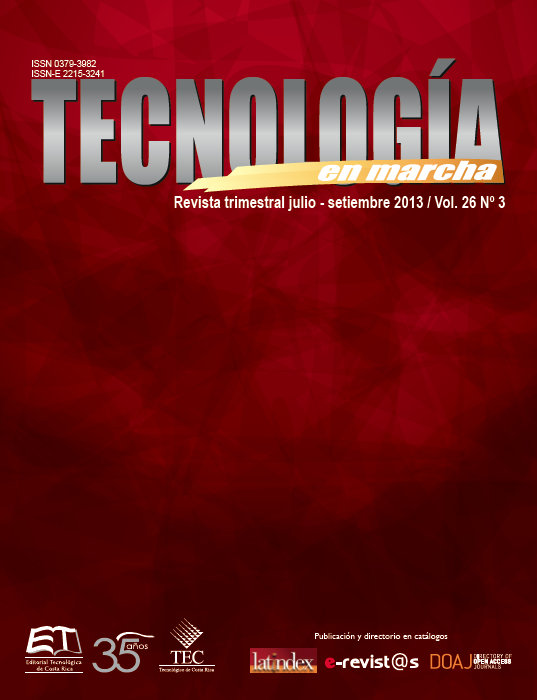Vulnerability of rural water systems: how to identify it
Main Article Content
Abstract
The analysis in this study aims to determine the vulnerability of rural water systems in the area and specifically in Zona Huetar Norte, San Carlos, Costa Rica, where we worked with a statistical sample of organizations that supply drinking water to their communities. The systems are developed and operated by Rural Water Management Boards or ASADAS.
The proposal seeks to qualitatively assess the different components of a rural water system, which is formed by springs, storage tanks and a distribution network. To determine the vulnerability assessment surveys were conducted, applied both to members of the ASADAS as well as the aqueducts infrastructure under study. We also sampled water from different aqueducts, where determined variables of physical-chemical were and biological. This analysis looked variables, which represent or make the system vulnerable. Within these variables created by humans, growths are agriculture, livestock and urban, which affect directly or indirectly and even systems are a threat to their proper functioning or persistence over time. Other variables analyzed are those generated by the very nature, such is the case of earthquakes, earthquakes, volcanoes, floods and landslide. Another aspect was analyzed, education and environmental management, internal to the ASADAS.
The qualitative analysis revealed the vulnerability representing the phenomena created by man and nature, for rural water systems, as well as determining the absence of any educational program and environmental management by the administrative boards of Rural Water.
Article Details
Los autores conservan los derechos de autor y ceden a la revista el derecho de la primera publicación y pueda editarlo, reproducirlo, distribuirlo, exhibirlo y comunicarlo en el país y en el extranjero mediante medios impresos y electrónicos. Asimismo, asumen el compromiso sobre cualquier litigio o reclamación relacionada con derechos de propiedad intelectual, exonerando de responsabilidad a la Editorial Tecnológica de Costa Rica. Además, se establece que los autores pueden realizar otros acuerdos contractuales independientes y adicionales para la distribución no exclusiva de la versión del artículo publicado en esta revista (p. ej., incluirlo en un repositorio institucional o publicarlo en un libro) siempre que indiquen claramente que el trabajo se publicó por primera vez en esta revista.

